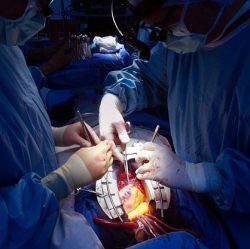
A team of researchers has turned to stem cells in a quest to find an a more effective treatment for patients with drug-resistant tuberculosis (TB).
The new method being investigated involves using the patients’ own bone marrow mesenchymal stromal cells (MSCs) to boost immune response and heal damaged tissue.
Multi-drug resistant TB effects around 450,000 in Eastern Europe, Asia, and South Africa according to the World Health Organization, and conventional treatments have a low rate of success.
Currently in its preliminary stages, the study is designed to investigate the possibility that MSCs can help organs to regulate themselves and repair damaged or traumatized tissues. Specifically in this case, the stem cells migrate to the lung with TB bacteria inflammation and improve the immune response to help the body get rid of the bacteria.
Between September 2009 and June 2011, the study looked at 30 patients from a specialist center in Minsk, Belarus, whose age varied from 21 to 65 years old, and who were resistant to TB drugs. They chose Belarus because of the high rate of resistant tuberculosis (76 percent) among treated patients in that region. They also observed 30 patients who met the inclusion criteria and who opted not to have MSC therapy.
Besides giving patients the anti-TB antibiotics, the researchers collected cells from their own bone marrow, cultured them and introduced them back into the patient within four weeks of the start of the anti-TB drug treatment. Eighteen months later, the rate of cure for patients who received MSC therapy was more than three times higher compared with those who didn’t get treated with the cells.
